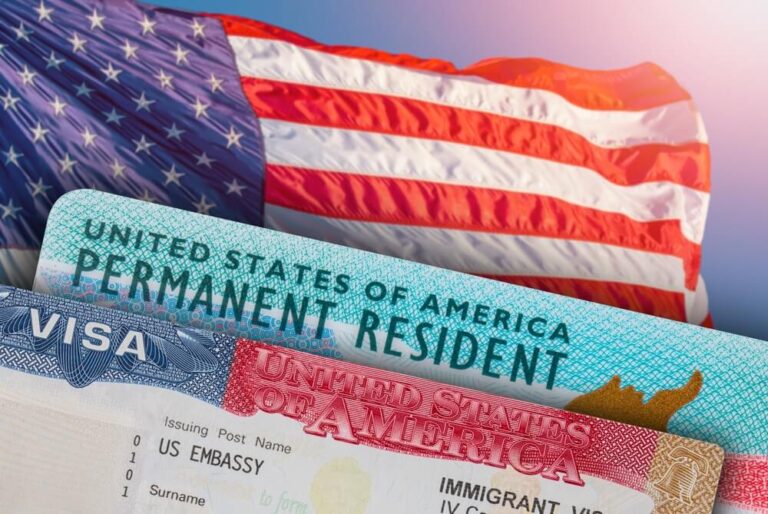In recent years, many individuals and families in Virginia have faced unexpected delays in green card processing, even when their applications were properly filed. These delays can disrupt lives, careers, and family plans, often with little explanation or transparency from immigration agencies.
If you’re waiting for your green card in Virginia and feel stuck, you’re not alone. In this guide, you’ll learn why delays happen, what you can legally do to speed up the process, and how working with a skilled Virginia immigration attorney can help you take control of your case.
Why Are Green Cards Delayed in Virginia?
Even though USCIS processes immigration applications at the federal level, the local field office handling your case can influence the speed. In Virginia, processing delays are often due to:
- Increased application volume post-COVID
- Backlogs at local USCIS field offices (especially Fairfax and Norfolk)
- Requests for Evidence (RFEs) or missing documents
- Delays in biometric appointments or interviews
- Security checks and administrative processing
- Errors or inconsistencies in the submitted application
These issues can push expected timelines back by months or even years for family and employment-based green card applicants.
Types of Green Card Delays You Might Face
1. Application Stuck After Biometrics
You completed your biometrics, but months have passed with no updates. This is common when:
- The local USCIS office is backlogged
- Your case is waiting for a visa number (for capped categories)
- A background check is still pending
2. Interview Scheduled, Then Cancelled
In some Virginia cases, interviews are canceled or rescheduled with little notice, adding months to the wait time.
3. No Update After Filing I-485 or I-130
Sometimes, your adjustment of status or family petition is accepted, but there is no further action or response for an extended period.
What You Can Do to Speed Up Your Green Card Case
While you can’t control processing times, there are legal and procedural ways to take action.
1. Submit a Case Inquiry
If your case is outside normal processing time, you or your attorney can submit an inquiry through the USCIS website. This won’t always lead to immediate results, but it creates a record of delay and starts the pressure.
2. Request Expedited Processing
In limited cases, you may qualify for expedited processing based on the following:
- Severe financial loss to a person or company
- Urgent humanitarian need
- Government interest (e.g., healthcare worker, researcher)
- Clear USCIS error
An immigration attorney can help you file a detailed request with supporting evidence.
3. File a Congressional Inquiry
You may contact your local congressional representative for help with delayed immigration cases. Their office can formally inquire with USCIS on your behalf, which is often taken seriously by local USCIS field offices.
4. Mandamus Lawsuit (As a Last Resort)
If your green card has been delayed for an unreasonable period and all other avenues are exhausted, an attorney can file a writ of mandamus in federal court. This compels USCIS to act—but only when delays are truly excessive and unjustified.
How a Virginia Immigration Attorney Can Help Expedite Your Case
Delays are frustrating, but also a sign that professional intervention may be needed. Here’s how an experienced immigration attorney in Virginia can assist:
1. Case Analysis & Strategy
We evaluate the root cause of the delay—whether administrative, legal, or technical—and build a tailored plan to move your case forward.
2. RFE & Evidence Review
If your case received a Request for Evidence or needs further documentation, we ensure it’s handled thoroughly, reducing your risk of denial or extended review.
3. Expedited Requests & Congressional Liaisons
We prepare strong expedited requests based on valid legal grounds and help initiate congressional inquiries when appropriate.
4. Legal Pressure If Needed
When cases have stalled for over a year without a valid reason, we can escalate to legal remedies, while keeping your immigration goals protected.
Avoiding Delays Before They Happen
The best way to avoid green card delays is to submit a strong, error-free petition from the beginning. This includes:
- Filing the correct forms with accurate information
- Including all required supporting documents
- Responding promptly to USCIS notices
- Tracking your priority date and Visa Bulletin updates
- Keeping USCIS informed of any address or status changes
An attorney ensures every application detail is complete, compliant, and positioned for timely approval.
Final Thoughts
A delayed green card doesn’t mean a denied future—but it does mean you need clarity, legal insight, and proactive steps. In Virginia, where local USCIS offices are under pressure, having a knowledgeable immigration attorney on your side can make a measurable difference.
Don’t wait in uncertainty if your case is stuck or moving slower than expected. There are proven legal strategies to help expedite your green card—and you deserve to move forward confidently.
FAQs: Green Card Delays in Virginia
Q: What is considered an unreasonable delay for a green card?
It may be considered unreasonable if your case is well beyond USCIS’s published processing time, typically 12+ months with no update.
Q: Can I travel while my green card is delayed?
Only if you’ve been approved for Advance Parole (Form I-131), otherwise, international travel could jeopardize your case.
Q: Will contacting USCIS multiple times help?
Not always. Well-timed legal action or congressional assistance is often more effective than repeated inquiries.
Q: Do delays affect my ability to work?
If your work permit (EAD) is based on a pending I-485, it remains valid until expiration. Renewal delays can also be addressed legally.

